| Listing 1 - 10 of 99 | << page >> |
Sort by
|
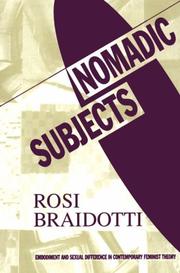
ISBN: 0231082355 Year: 1994 Volume: *3 Publisher: New York (N.Y.) : Columbia university press,
Abstract | Keywords | Export | Availability | Bookmark
 Loading...
Loading...Choose an application
- Reference Manager
- EndNote
- RefWorks (Direct export to RefWorks)
Bundel met essays waarin de plaatsbepaling van de feministische theorievorling en meer bepaald het seksuele differntie denken ten aanzien van de gangbare Westerse filosofie en epistemologie centraal staat. Het geheel vormt een pleidooi voor de integratie van feministisch gedachtengoed in de gevestigde wetenschappelijke discours. In hoofdstuk elf 'Women's Studies and the Politics of Difference', wordt nagegaan of de praktijk van geïnstitutionaliseerde vrouwenstudies de relevantie van seksuele differentie op onderzoeksniveau bewijst.
Political philosophy. Social philosophy --- Sociology of the family. Sociology of sexuality --- Sexology --- Différences entre sexes --- Feminism--Philosophy --- Feminist sociology --- Feminist theory --- Feministische theorie --- Gender differences --- Genderdiversiteit --- Sekseverschillen --- Sex differences --- Sexes [Différences entre ] --- Sexual dimorphism in humans --- Theory of feminism --- Théorie féministe --- Verschillen [Sekse ] --- Body --- Feminist theory. --- Sex differences. --- Social aspects. --- Sex differentiation --- Feminism --- Feminist philosophy --- Social aspects --- Philosophy --- Human body --- Body - Social aspects. --- Gender --- Theory --- Reproductive technology --- Women's studies --- Book
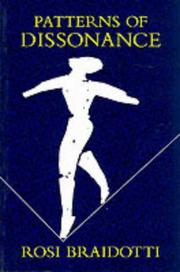
ISBN: 0745605206 0745609120 Year: 1991 Publisher: Cambridge Polity
Abstract | Keywords | Export | Availability | Bookmark
 Loading...
Loading...Choose an application
- Reference Manager
- EndNote
- RefWorks (Direct export to RefWorks)
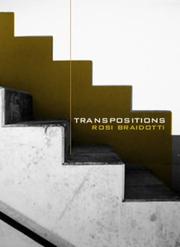
ISBN: 0745635962 0745635954 Year: 2006 Publisher: Cambridge Polity press
Abstract | Keywords | Export | Availability | Bookmark
 Loading...
Loading...Choose an application
- Reference Manager
- EndNote
- RefWorks (Direct export to RefWorks)
Philosophy and psychology of culture --- General ethics --- Social ethics. --- Social ethics --- Ethics --- Social problems --- Sociology --- Race --- Feminism --- Philosophy --- Gender --- Body --- Politics --- Theory --- Book --- Globalization --- Animals --- Empowerment
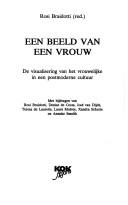
ISBN: 903910526X Year: 1993 Publisher: Kampen Kok Agora
Abstract | Keywords | Export | Availability | Bookmark
 Loading...
Loading...Choose an application
- Reference Manager
- EndNote
- RefWorks (Direct export to RefWorks)
Sociology of the family. Sociology of sexuality --- Feminist theory --- Postmodernism --- #SBIB:316.346H29 --- #SBIB:022.TOND --- #GBIB:IDGP --- Post-modernism --- Postmodernism (Philosophy) --- Arts, Modern --- Avant-garde (Aesthetics) --- Modernism (Art) --- Philosophy, Modern --- Post-postmodernism --- Feminism --- Feminist philosophy --- Feminist sociology --- Theory of feminism --- Positie van de vrouw in de samenleving: andere topics --- Philosophy --- Feminist theory. --- Postmodernism. --- Femmes --- Postmodernisme et littérature --- Dans l'art --- Dans la littérature
Book
ISBN: 9780231153881 0231153880 9780231153898 0231153899 Year: 2011 Publisher: New York, N.Y. Columbia University Press
Abstract | Keywords | Export | Availability | Bookmark
 Loading...
Loading...Choose an application
- Reference Manager
- EndNote
- RefWorks (Direct export to RefWorks)
For more than fifteen years, Nomadic Subjectshas guided discourse in continental philosophy and feminist theory, exploring the constitution of contemporary subjectivity, especially the concept of difference within European philosophy and political theory. Rosi Braidotti's creative style vividly renders a productive crisis of modernity. From a feminist perspective, she recasts embodiment, sexual difference, and complex concepts through relations to technology, historical events, and popular culture. This thoroughly revised and expanded edition retains all but two of Braidotti's original essays, including her investigations into epistemology's relation to the "woman question;" feminism and biomedical ethics; European feminism; and the possible relations between American feminism and European politics and philosophy. A new piece integrates Deleuze and Guattari's concept of the "becoming-minoritarian" more deeply into modern democratic thought, and a chapter on methodology explains Braidotti's methods while engaging with her critics. A new introduction muses on Braidotti's provocative legacy.
Feminist theory --- Sex differences --- Human body --- Social aspects --- Feminist theory. --- Sex differences. --- Théorie féministe --- Différences entre sexes --- Corps humain --- Social aspects. --- Aspect social --- Théorie féministe --- Différences entre sexes --- Sociologie van de politiek --- feminisme --- seksuologie --- Political sociology --- feminism --- Political philosophy. Social philosophy --- Sociology of the family. Sociology of sexuality --- Sexology --- women's studies --- gender [sociological concept] --- #breakthecanon --- Human body - Social aspects --- Feminism --- Philosophy --- Gender --- Theory --- Reproductive technology --- Women's studies --- Book
Book
ISBN: 9780231151917 9780231151900 023115190X 0231151918 9780231525428 0231525427 Year: 2011 Publisher: New York : Columbia University Press,
Abstract | Keywords | Export | Availability | Bookmark
 Loading...
Loading...Choose an application
- Reference Manager
- EndNote
- RefWorks (Direct export to RefWorks)
Rosi Braidotti's nomadic theory outlines a sustainable modern subjectivity as one in flux, never opposed to a dominant hierarchy yet intrinsically other, always in the process of becoming, and perpetually engaged in dynamic power relations both creative and restrictive. Nomadic theory offers an original and powerful alternative for scholars working in cultural and social criticism and has, over the past decade, crept into continental philosophy, queer theory, and feminist, postcolonial, techno-science, media, and race studies, as well as into architecture, history, and anthropology. This collection provides a core introduction to Braidotti's nomadic theory and its innovative formulations, which playfully engage with Deleuze, Foucault, Irigaray, and a host of political and cultural issues. Arranged thematically, essays begin with such concepts as sexual difference and embodied subjectivity and follow with explorations in technoscience, feminism, postsecular citizenship, and the politics of affirmation. Braidotti develops a distinctly positive critical theory that rejuvenates the experience of political scholarship. Inspired yet not confined by Deleuzian vitalism, with its commitment to the ontology of flows, networks, and dynamic transformations, she emphasizes affects, imagination, and creativity and the politics of radical immanence. Incorporating ideas from Nietzsche and Spinoza as well, Braidotti establishes a critical-theoretical framework equal parts critique and creation. Ever mindful of the perils of defining difference in terms of denigration and the related tendency to subordinate sexualized, racialized, and naturalized others, she explores the eco-philosophical implications of nomadic theory, feminism, and the irreducibility of sexual difference and sexuality. Her dialogue with technoscience is crucial to nomadic theory, which deterritorializes the established understanding of what counts as human, along with our relationship to animals, the environment, and changing notions of materialism. Keeping her distance from the near-obsessive focus on vulnerability, trauma, and melancholia in contemporary political thought, Braidotti promotes a politics of affirmation that has the potential to become its own generative life force.
Philosophy, Modern --- Continental philosophy --- Critical theory --- Continental philosophy. --- Critical theory. --- Philosophie continentale --- Philosophie --- Différence (philosophie) --- 21e siècle --- Dans la littérature --- Critical social theory --- Critical theory (Philosophy) --- Critical theory (Sociology) --- Negative philosophy --- Philosophy, Continental --- #SBIB:1H30 --- #SBIB:316.346H00 --- Filosofie van de mens, wijsgerige antropologie --- Man-vrouw-studies, gender: algemeen --- Criticism (Philosophy) --- Rationalism --- Sociology --- Frankfurt school of sociology --- Socialism --- Philosophie continentale. --- 21e siècle. --- Dans la littérature. --- Philosophy, Modern - 21st century --- Différence (philosophie) --- 21e siècle. --- Dans la littérature.
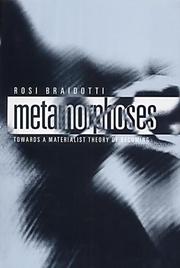
ISBN: 0745625770 0745625762 9780745625768 9780745625775 Year: 2005 Publisher: Cambridge Polity
Abstract | Keywords | Export | Availability | Bookmark
 Loading...
Loading...Choose an application
- Reference Manager
- EndNote
- RefWorks (Direct export to RefWorks)
Becoming (Philosophy). --- #SBIB:1H30 --- #SBIB:316.346H10 --- Filosofie van de mens, wijsgerige antropologie --- Vrouwenproblematiek, feminisme: algemeen --- Developmental psychology --- Sexology --- Philosophy of science --- Sociology of the family. Sociology of sexuality --- Philosophy --- Human physiology --- Becoming (Philosophy) --- Devenir (Philosophie) --- Worden (Filosofie) --- Wording (Filosofie) --- Feminist theory --- Feminism --- Feminist philosophy --- Feminist sociology --- Theory of feminism --- Change --- Process philosophy --- Philosophy and psychology of culture --- Identity --- Body --- Sexuality --- Theory --- Book --- Social constructivism --- Cyber-feminism
Book
ISBN: 9780745641577 0745641571 074564158X 9780745641584 Year: 2013 Publisher: Cambridge : Polity,
Abstract | Keywords | Export | Availability | Bookmark
 Loading...
Loading...Choose an application
- Reference Manager
- EndNote
- RefWorks (Direct export to RefWorks)
The Posthuman offers both an introduction and major contribution to contemporary debates on the posthuman. Digital 'second life', genetically modified food, advanced prosthetics, robotics and reproductive technologies are familiar facets of our globally linked and technologically mediated societies. This has blurred the traditional distinction between the human and its others, exposing the non-naturalistic structure of the human. The Posthuman starts by exploring the extent to which a post-humanist move displaces the traditional humanistic unity of the subject. Rather than perceiving this situation as a loss of cognitive and moral self-mastery, Braidotti argues that the posthuman helps us make sense of our flexible and multiple identities. Braidotti then analyzes the escalating effects of post-anthropocentric thought, which encompass not only other species, but also the sustainability of our planet as a whole. Because contemporary market economies profit from the control and commodification of all that lives, they result in hybridization, erasing categorical distinctions between the human and other species, seeds, plants, animals and bacteria. These dislocations induced by globalized cultures and economies enable a critique of anthropocentrism, but how reliable are they as indicators of a sustainable future? The Posthuman concludes by considering the implications of these shifts for the institutional practice of the humanities. Braidotti outlines new forms of cosmopolitan neo-humanism that emerge from the spectrum of post-colonial and race studies, as well as gender analysis and environmentalism. The challenge of the posthuman condition consists in seizing the opportunities for new social bonding and community building, while pursuing sustainability and empowerment.
Persons. --- Philosophical anthropology. --- Biotechnology. --- Personnes --- posthumanisme --- Human beings --- Philosophical anthropology --- 130.2 --- antropologie --- cultuurfilosofie --- filosofie --- identiteit --- Anthropology, Philosophical --- Man (Philosophy) --- Civilization --- Life --- Ontology --- Humanism --- Persons --- Philosophy of mind --- Homo sapiens --- Human race --- Humanity (Human beings) --- Humankind --- Humans --- Man --- Mankind --- People --- Hominids --- Philosophy --- #SBIB:316.7C120 --- #SBIB:1H30 --- 316.323.9 --- 316.323.9 Postmoderne maatschappij. Sociologie van het postmodernisme --- Postmoderne maatschappij. Sociologie van het postmodernisme --- Cultuursociologie: algemene en theoretische werken --- Filosofie van de mens, wijsgerige antropologie --- Anthropologie philosophique --- Biotechnologie --- Human beings. --- Corps humain --- Philosophie de l'homme --- Technologie --- Homme --- Philosophie. --- Aspect social --- Effets des innovations --- Innovations --- Rosa Braidotti --- Rosi Braidotti --- #SBIB:39A3 --- Antropologie: geschiedenis, theorie, wetenschap (incl. grondleggers van de antropologie als wetenschap) --- Corps humain - Philosophie. --- Technologie - Aspect social --- Homme - Effets des innovations --- Corps humain - Innovations --- Feminism --- Gender --- Climate --- Technology --- Science --- Book
Book
ISBN: 9781844656158 9781844652174 1844656152 1844652173 9781315729732 1315729733 9781317546818 1317546814 9781317546795 1317546792 9781317546801 1317546806 Year: 2013 Publisher: Durham Acumen
Abstract | Keywords | Export | Availability | Bookmark
 Loading...
Loading...Choose an application
- Reference Manager
- EndNote
- RefWorks (Direct export to RefWorks)
History of philosophy --- Continental philosophy --- Postmodernism. --- Philosophy, Modern --- Critical theory. --- History --- History.
Book
ISBN: 9781509518081 9781509518074 150951807X 1509518088 Year: 2022 Publisher: Cambridge Polity
Abstract | Keywords | Export | Availability | Bookmark
 Loading...
Loading...Choose an application
- Reference Manager
- EndNote
- RefWorks (Direct export to RefWorks)
In a context marked by the virulent return of patriarchal and white supremacist attitudes, a new generation of feminist activists are continuing the struggle: these are very feminist times. But how do these and other movements relate to the contemporary posthuman condition? In this important new book, Rosi Braidotti examines the implications of the posthuman turn for feminist theory and practice. She defines the posthuman turn as a convergence between posthumanism on the one hand and post-anthropocentrism on the other, and she examines their complex relationship and joint impact. Braidotti claims that mainstream posthuman scholarship has neglected feminist theory, while in fact feminism is one of the precursors of the posthuman turn, through diverse social movements and political traditions. Posthuman Feminism is an analytic and creative response to contemporary conditions and a call to action. It highlights the constraints but also the potentialities available to feminist political subjects as they confront the ever-growing injustices of sexism, racism, ecocide and neoliberal capitalism. This bold new text by a leading feminist philosopher will be of great interest to students and scholars throughout the humanities and social sciences.
Feminism --- Feminism. --- History --- 2000-2099. --- Emancipation of women --- Feminist movement --- Women --- Women's lib --- Women's liberation --- Women's liberation movement --- Women's movement --- Social movements --- Anti-feminism --- Emancipation --- Feminist theory. --- Transhumanism. --- #SBIB:316.346H10 --- #SBIB:1H30 --- #SBIB:39A4 --- Vrouwenproblematiek, feminisme: algemeen --- Filosofie van de mens, wijsgerige antropologie --- Toegepaste antropologie --- Political philosophy. Social philosophy --- Sociology of the family. Sociology of sexuality --- racial discrimination --- capitalism --- feminism --- Social science --- Capitalism --- Racism --- Sexism --- Technology --- Theory --- Book --- Ecofeminism
| Listing 1 - 10 of 99 | << page >> |
Sort by
|

 Search
Search Feedback
Feedback About UniCat
About UniCat  Help
Help News
News